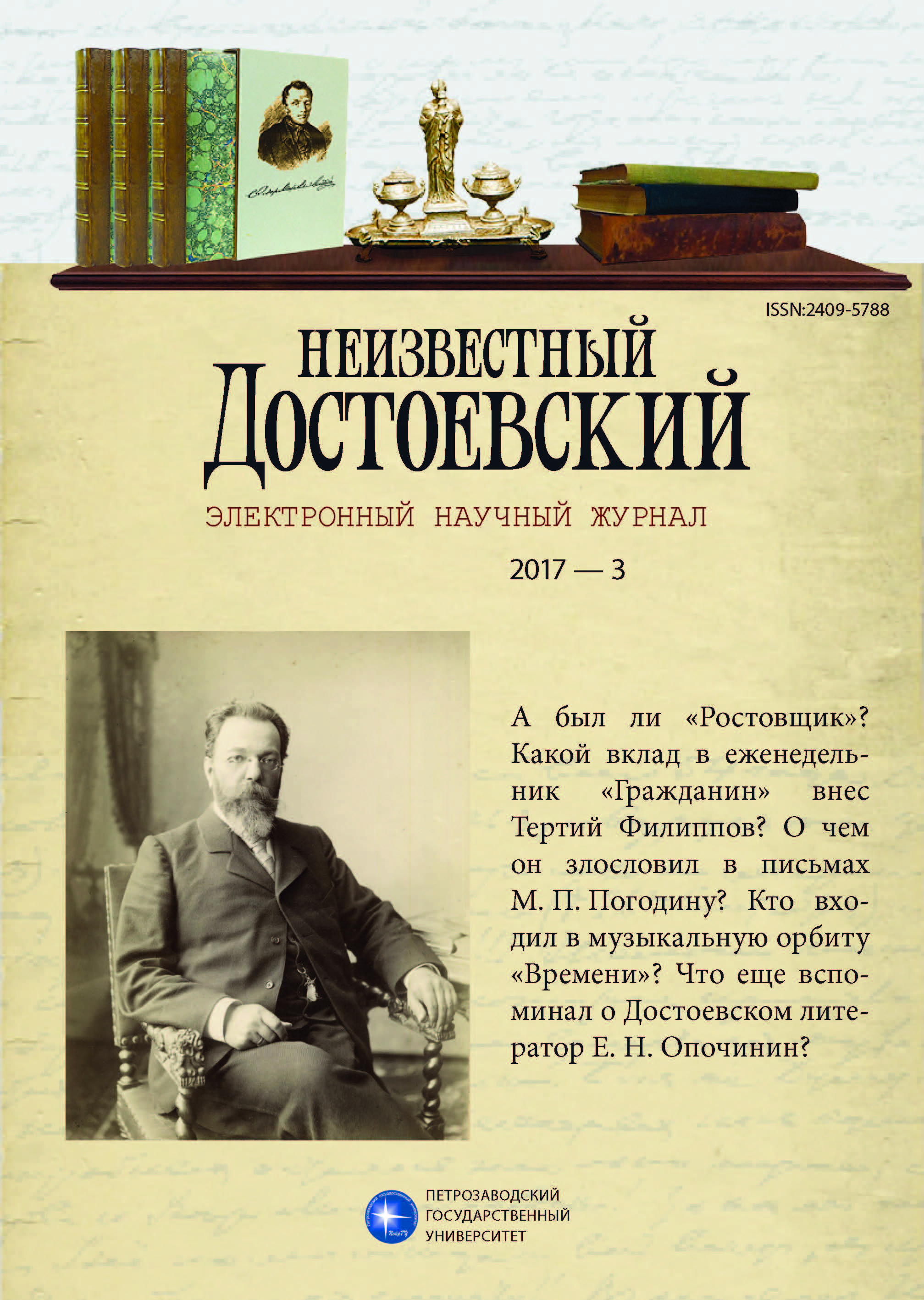Знакомые Достоевского: К. П. Вильбоа — русский композитор с французской фамилией
Dostoevsky’s Acquaintances: K. P. Villebois, Russian Composer with a French Surname
Author(s): Irina Svyatoslavovna AndrianovaSubject(s): Language and Literature Studies, Literary Texts, Studies of Literature, Russian Literature, Philology
Published by: Петрозаводский государственный университет
Keywords: Dostoevsky; K. P. Villebois; M. I. Glinka; Balakirev’s circle; an ethnie in art; Russian composers of the 19th century; enlightened dilettantism
Summary/Abstract: I. S. Andrianova Dostoevsky’s Acquaintances: K. P. Villebois, Russian Composer with a French Surname Abstract All his life F. M. Dostoevsky was bound with music. He liked singing and attended literary and musical events and concerts, Russian and Italian opera. Thus, music found its way in his works. The writer was well-received among the composers, musicians, singers and actors. Dostoevsky used to meet Petersburg musicians in different years, particularly, in 1860 in the circle of his friends, at literary and musical events, where they often appeared together. Among his acquaintances there were musicians and composers M. I. Glinka, K. N. Lyadov, M. P. Mussorgsky, the Rubinsteins, A. N. Serov, P. P. Sokalsky, K. P. Villebois, G. Venyavsky, N. A. Kashevsky. Dostoevsky met only once some of them while he was bound with others by companionship during a long time. In late 1860 -early 1861 Dostoevsky got acquainted with composer K. P. Villebois, a disciple and assistant of M. I. Glinka. A common interest they had in determining an ethnie in art and in the Russian idea drew them together for a short period of time. This article based on the study of the periodicals of the 19th century reveals the forgotten and new biographical data of Villebois and presents an overview of his relations with Glinka and Dostoevsky. There is the only letter of the composer to the writer remained unpublished in full. It shows the level of Dostoevsky’s musical culture and his circle of contacts among musicians in the 1860s. Attached to the article there is the letter published with commentaries.
Journal: Неизвестный Достоевский
- Issue Year: 4/2017
- Issue No: 3
- Page Range: 46-66
- Page Count: 20
- Language: English, Russian

